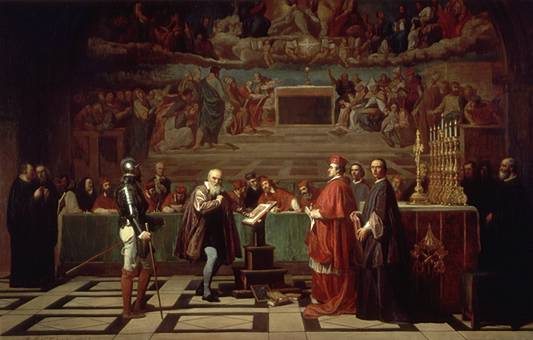
. . . the great physicist, applied mathematician, and astronomer Galileo Galilei passed from this world into the annals of history, having spent the last ten of his 77 years on Earth under house arrest for the crime of telling the truth.
More specifically, for asserting that the movements of heavenly bodies he had deduced from his own and others’ empirical observations were true despite the fact that they conflicted with the official doctrine of the Church – which is to say, also, with the official doctrine of the state at that time. For this assertion he was tried by the Inquisition and found “vehemently suspect of heresy.” (though it appears that his being a pain about it and making his former buddy the Pope look dumb also played a part in this outcome).
Galileo’s words to the Grand Duchess Christina in 1615 on this topic should provide inspiration and a lesson to all of us who get sucked in (which, in reality, means every citizen) to the struggle between the science of what is and the powerful interests that find those facts inconvenient:
“I do not feel obliged to believe that the same God who has endowed us with sense, reason, and intellect has intended us to forgo their use.”
History has of course vindicated Galileo, whom Einstein and Stephen Hawking have both referred to as the father of science. It was not until 1835 that the Church dropped all mention of Galileo’s offending works from its index of prohibited works, and not until 1992 (350 years later!) that Pope John Paul II issued a declaration acknowledging that the tribunal that judged Galileo had been wrong. Old habits, indeed, die hard.
And so, to you, Granddaddy of science, we say: Rock on!
Leave a Reply